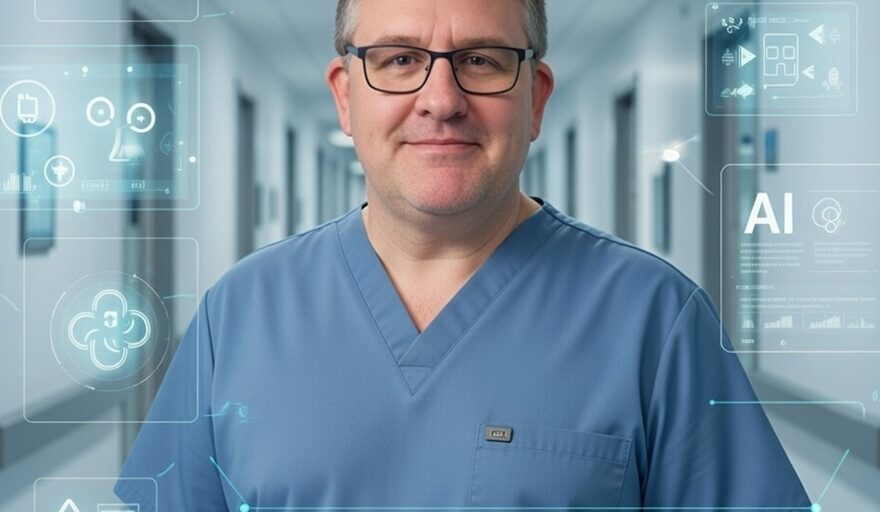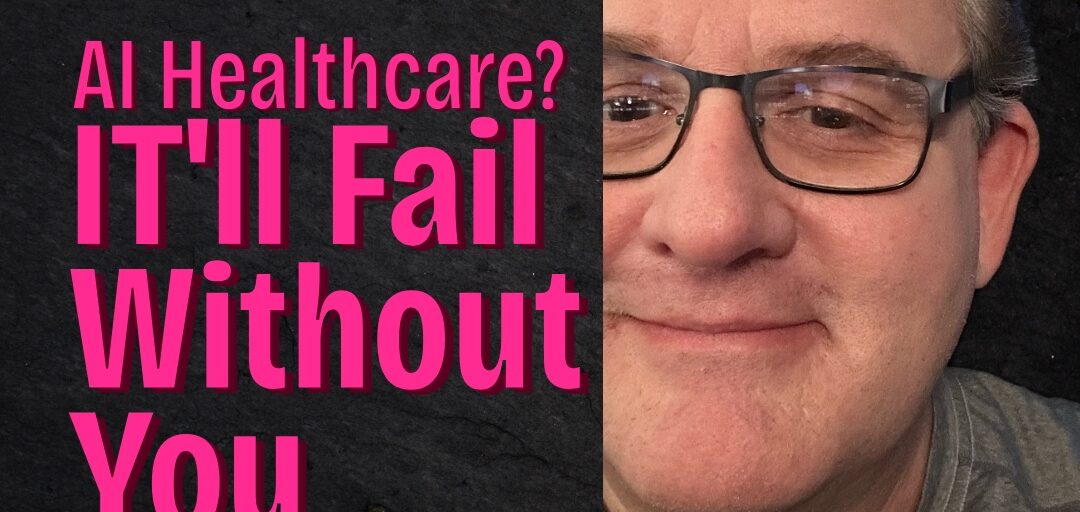Clinical Expertise Meets Robotics: Your Gateway to Healthcare Automation Careers
Written by Rod on July 14, 2025
Are you a clinical professional ready to discover how your expertise can unlock exciting clinical expertise robotics careers? The healthcare automation revolution isn’t just changing how we deliver patient care—it’s creating unprecedented opportunities for nurses, doctors, and other clinical professionals to leverage their bedside experience in the rapidly growing field of healthcare robotics. Your years of understanding patient workflows, safety protocols, and care coordination aren’t becoming obsolete—they’re becoming your competitive advantage in one of the most promising career transitions in digital health today.
Healthcare robotics isn’t science fiction—it’s happening right now in hospitals, clinics, and care facilities worldwide. And the professionals designing, implementing, and optimizing these systems aren’t just engineers—they’re clinical professionals who understand how healthcare actually works.
Your clinical experience isn’t becoming obsolete—it’s becoming the secret weapon that makes healthcare automation actually successful.
The Healthcare Robotics Revolution Is Here
Walk into any modern hospital today and you’ll see the transformation already underway:
- Surgical robots performing precise procedures with clinical oversight
- Medication dispensing robots reducing errors and freeing up pharmacy time
- Cleaning and disinfection robots maintaining sterile environments
- Patient transport robots moving supplies and equipment efficiently
- Telepresence robots connecting remote specialists with patients
- Rehabilitation robots providing consistent physical therapy protocols
But here’s what most people don’t realize: every successful robotics implementation requires clinical professionalswho understand workflows, patient safety, and care quality standards.
Why Robotics Companies Desperately Need Your Clinical Knowledge
The robotics industry has learned a painful lesson: brilliant engineering means nothing if the technology doesn’t work in real healthcare settings. Too many robotic systems have failed because they were designed by engineers who’d never worked a clinical shift.
Your Clinical Workflow Expertise
You understand the intricate dance of healthcare delivery—how nurses coordinate care, how doctors make decisions under pressure, how patients move through care systems. This knowledge is impossible to learn in a classroom and invaluable for robotics implementation.
Patient Safety Intuition
Your clinical experience gives you an instinctive understanding of what could go wrong in healthcare settings. When designing or implementing robotic systems, this safety awareness prevents catastrophic errors that pure engineers might miss.
Staff Adoption Understanding
You know how healthcare workers think, what their concerns are, and how to gain buy-in for new technologies. This insight is crucial for successful robotics deployments that actually get used rather than gathering dust.
Quality Care Standards
Your clinical background ensures that robotic automation enhances rather than compromises care quality. You understand when efficiency gains are worth pursuing and when human touch remains essential.
High-Growth Robotics Careers Perfect for Clinical Professionals
The intersection of clinical expertise and robotics automation has created entirely new career paths with excellent growth potential and competitive compensation:
Clinical Robotics Consultant
Guide healthcare organizations in selecting and implementing robotic solutions. Your clinical credibility opens doors that technical sales representatives can’t access, and your ability to speak both clinical and technical languages makes you invaluable.
What you’d do: Assess clinical workflows, identify automation opportunities, and design implementation strategies that work in real healthcare environments.
Why your clinical background matters: You understand the difference between theoretical efficiency and practical reality in clinical settings.
Robotics Implementation Specialist
Lead the deployment of robotic systems in healthcare facilities, ensuring smooth integration with existing workflows and staff training.
What you’d do: Manage robotics rollouts, train clinical staff, troubleshoot integration challenges, and optimize robotic workflows for maximum benefit.
Why your clinical background matters: You can anticipate staff concerns, design realistic training programs, and ensure robotic systems enhance rather than disrupt patient care.
Clinical Automation Analyst
Analyze healthcare workflows to identify opportunities for robotic automation and measure the impact of implemented systems.
What you’d do: Study clinical processes, design automation solutions, analyze performance data, and continuously optimize robotic systems for better outcomes.
Why your clinical background matters: You understand which tasks are appropriate for automation and which require human clinical judgment.
Robotics Product Manager
Shape the development of healthcare robotics products by ensuring they meet real clinical needs and integrate seamlessly with care delivery.
What you’d do: Guide product development, prioritize features based on clinical value, and ensure robotic solutions solve actual healthcare problems.
Why your clinical background matters: You can distinguish between features that sound impressive and features that actually improve patient care.
The Learning Curve: Building on Your Clinical Foundation
The beautiful truth about transitioning to healthcare robotics is that your clinical expertise is the hardest part to acquire. The technical knowledge you need builds naturally on your existing foundation:
What You Already Know (The Hard Part):
- Clinical workflows and decision-making processes
- Patient safety protocols and quality standards
- Healthcare team dynamics and communication patterns
- Regulatory requirements and compliance standards
- Care coordination and interdisciplinary collaboration
What You Can Learn Quickly (The Easy Part):
- Basic robotics concepts and terminology
- Automation principles and workflow optimization
- Project management for technology implementations
- Data analysis for measuring automation impact
- Change management for technology adoption
Most successful clinical professionals in robotics didn’t start with engineering backgrounds—they started with deep clinical knowledge and learned just enough technology to become dangerous.
Real-World Impact: Where Clinical Robotics Makes a Difference
Your expertise in healthcare robotics creates tangible improvements in both patient care and clinical work life:
Medication Management Automation
Robotic pharmacy systems reduce medication errors by up to 85% while freeing clinical staff for patient interaction. Your clinical insight ensures these systems integrate smoothly with nursing workflows and maintain safety standards.
Surgical Robotics Optimization
Advanced surgical robots enable more precise procedures with faster recovery times. Clinical professionals guide the integration of these systems, ensuring surgical teams can leverage robotic capabilities effectively.
Patient Monitoring Automation
Robotic monitoring systems track vital signs and alert staff to concerning changes, allowing earlier intervention. Your clinical judgment helps calibrate these systems to provide meaningful alerts without alarm fatigue.
Rehabilitation Robotics
Automated physical therapy systems provide consistent, measurable rehabilitation protocols. Clinical professionals ensure these systems complement rather than replace the therapeutic relationship.
The Work-Life Balance Advantage
Healthcare robotics careers typically offer significant improvements in work-life balance compared to traditional clinical roles:
Predictable Schedules: Most robotics positions follow standard business hours with minimal weekend or holiday requirements.
Project-Based Work: Many roles involve discrete projects with clear timelines rather than the unpredictable demands of direct patient care.
Remote Opportunities: Consulting and analysis work can often be done remotely, providing location flexibility.
Intellectual Stimulation: Complex problem-solving and continuous learning keep work engaging without the physical demands of clinical practice.
Building Your Healthcare Robotics Career Path
Ready to explore where your clinical expertise meets robotics innovation? Here’s your strategic roadmap:
Phase 1: Foundation Building
- Assess your clinical workflows and identify automation opportunities in your current role
- Learn basic robotics concepts through online courses or industry publications
- Network with professionals already working in healthcare robotics
- Attend robotics conferences or healthcare technology events
Phase 2: Skill Development
- Take a project management course focusing on technology implementation
- Learn basic data analysis to measure automation impact
- Understand change management principles for technology adoption
- Practice translating between clinical and technical languages
Phase 3: Transition Strategy
- Target companies that explicitly value clinical backgrounds in robotics roles
- Highlight your clinical expertise as your primary qualification
- Seek mentorship from clinical professionals in robotics careers
- Start with consulting projects to build robotics experience
The Future Belongs to Clinical-Robotics Hybrids
Healthcare robotics isn’t replacing clinical professionals—it’s creating new types of clinical professionals who understand both human care and automated systems. These hybrid professionals are becoming some of the most valuable people in healthcare technology.
The organizations leading healthcare transformation aren’t just hiring engineers to build robotic systems—they’re hiring clinical professionals who can make robotics actually work in the messy, complex reality of healthcare delivery.
Your Clinical Superpower in Robotics
Your years of clinical experience aren’t becoming obsolete—they’re becoming your competitive advantage in one of the fastest-growing sectors of healthcare technology. While engineers can build impressive robots, you understand something far more valuable: how to make those robots actually improve patient care.
The healthcare robotics revolution needs clinical professionals who can bridge the gap between technological possibility and clinical reality. Your expertise in patient care, safety protocols, and healthcare workflows makes you uniquely qualified to shape how robotics transforms healthcare delivery.
Are you ready to leverage your clinical expertise in the exciting world of healthcare robotics? The automation revolution isn’t happening to healthcare—it’s happening with clinical professionals who understand how to make technology serve both patients and providers.
Your clinical knowledge is the key that unlocks the potential of healthcare robotics. The question isn’t whether you’re qualified for this transformation—it’s whether you’re ready to lead it.
References:
12] Robotics in Healthcare: Past, Present, and Future. AdventHealth University. https://www.ahu.edu/blog/robotics-in-healthcare
[13] Robotics in Healthcare: Top 10 Use-Cases in 2025. Standard Bots. https://standardbots.com/blog/10-ways-robotics-are-being-used-in-healthcare-today
[14] What Are The Top 10 Careers in Robotics in 2025? NEIT. https://www.neit.edu/blog/careers-in-robotics
[15] Artificial Intelligence With Robotics in Healthcare: A Narrative Review. PMC. https://pmc.ncbi.nlm.nih.gov/articles/PMC10287569/
[16] How automation gives healthcare workers time for patients. World Economic Forum. https://www.weforum.org/stories/2025/01/automation-healthcare-time/
[17] The Role of Robotics in Healthcare: 9 Current Trends. BGO Software. https://www.bgosoftware.com/blog/the-role-of-robotics-in-healthcare-9-current-trends/
[18] The future of robotics in healthcare: Automating the industry. Standard Bots. https://standardbots.com/blog/the-future-of-robotics-in-healthcare-automating-the-industry
[19] Clinicians’ Perceptions and Potential Applications of Robotics for Task Automation in Critical Care. PMC. https://pmc.ncbi.nlm.nih.gov/articles/PMC11992484/




